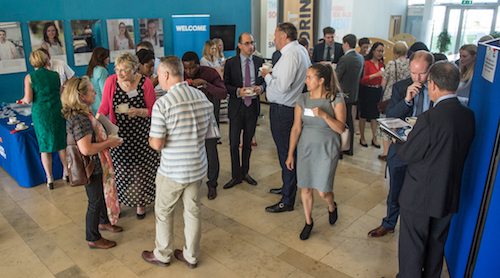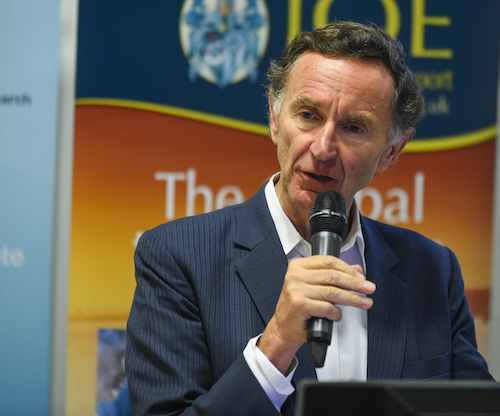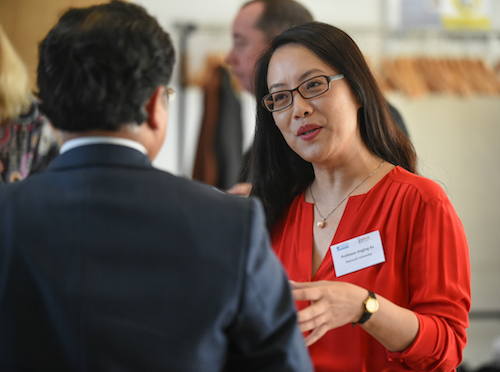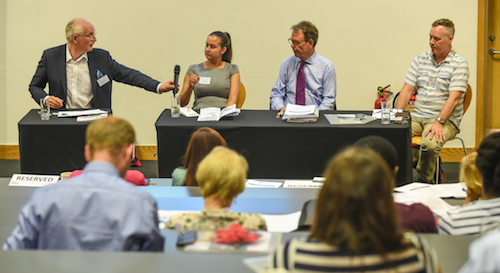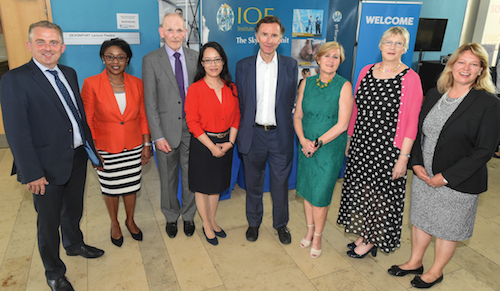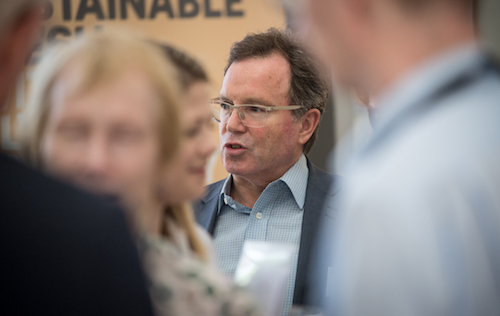Our latest World Trade Summit once again saw businesses get together to share ideas and sketch out plans for how to approach Brexit as we enter a new era of a more ‘Global Britain’. Run in partnership with the University of Plymouth’s Institute for Social, Policy and Enterprise Research, the summit highlighted the need for the UK to invest in its export skills and embrace it’s creativity and ingenuity.
To this point, keynote speaker Lord Green of Hustpierpoint, the President of the Institute, predicted that we need at least 2 generations of investment in skills training to make up for the lack of investment over the last two generations. Yet with our universities also facing challenges in staffing, funding and reputation because of Brexit, the summit also raised the need for the UK to think of new ways to meet this skills gap.
Representing the University of Plymouth, Dr Andreas Walmsley said that the UK needs to, ‘safeguard its reputation as an open and welcoming destination for international students’. He said that the UK has two options in terms of how it adjusts its approach to higher education after Brexit - it can either bury its head in the sand and hope for the best, or it can bring higher education and the needs of industry closer together to respond to the challenges of Brexit. Dr Walmsley highlighted the need to ensure graduates have the skills and mind-set required for the new trading climate, rather than the current vicious cycle of low value-add skills and lower salaries gained by recent graduates.
In the South West in particular, the skills need to do exporting properly are essential. Exporting already represents 32% of the regional economy with overseas sales accounting for 42% of total sales for those already trading internationally. And yet exporting is only going to become more challenging - Dr Walmsley declared that the UK currently exports more to Ireland than to all the BRIC markets combined.
There are plenty of markets waiting to be tapped into however. The Institute’s trade summits always feature trade specialists showcasing global markets beyond the EU and with plenty of demand for British products. At the South West summit Egypt and India were the latest two countries to be represented.
Iman El Sherif, from the Egyptian-British Chamber of Commerce, pointed out that the current foreign investment programme in Egypt is being designed to improve living standards, promote quicker job creation, and address the country’s infrastructure/energy gaps and reduce power and water shortages. Its industrial strategy is also being designed to boost high value exports to the country, something that will certainly speak out to UK businesses.
With its strategic location between Europe, Asia and Africa, and a larger consumer market with a well-educated young population, he was keen to point out that opportunities now outweigh the threats for doing business in Egypt, despite recent political uncertainty.
Siddharth Mukne, the Regional Head at UK India Business Council, quoted trade minister Narenda Modi, saying to prospective exporters to India:
“I want to assure you there is no red tape but only red carpet that awaits you in India.”
Siddharth was keen to play up the reliable growth in the Indian economy – growing at rates of over 7% - and the rapidly growing middle class, which has a high demand for quality British products.
One of the themes that speakers at the summit were keen to play up was Britain’s creativity and innovation. Richard Holt, Director at Creative Innovation Centre, noted that the UK is a global leader in business innovation development and improved productivity. He suggested that an increasingly global outlook is already helping the UK to stay ahead of the pack, but also noted the contribution towards this of international talent coming to the UK.
From an export point of view, he noted how much of a contribution design can play in increasing international sales. Research by the CIC has found that for every £1 companies invest in design to support their growth they can expect a return of £5 in exports.
On what would relatively recently have been described as a futuristic point, Tim Jones, the Chairman of Devon & Cornwall Business Council, discussed the need for British businesses to also invest in automation before and following Brexit. He pointed out that major players including Google, Apple, Facebook and Amazon have all achieved and sustained their positions harnessing AI, but also pointed out the threats to British Business of skills shortages, cyber crime and, of course, Brexit.
In terms of leading the South West into the future, Miles Carden from Aerohub Cornwall certainly triggered everyone’s imaginations. The space industry – including satellite launches, drone innovation, and propulsion and engine testing – is already a massive contributor to the region’s economy with £5.5bn sales including £2.75bn in exports, 59,000 direct jobs, and 900 SMEs in supply chains.
But, as ever with talk of Brexit, how the UK responds to the challenges of Brexit will be determined to a great extent by how much British businesses plan and prepare for its potential outcomes. Stephen Dilley from Bond Dickinson suggested that with Brexit, businesses need to have three-staged process of responding to it: review, adapt, and strategies for different potential outcomes.
To return to the keynote speech by Lord Green, how well Britain is able react to Brexit will be dependent on the investment by Britain’s government, businesses and universities in building the skills for trading in what will potentially be a very different global trade landscape.

